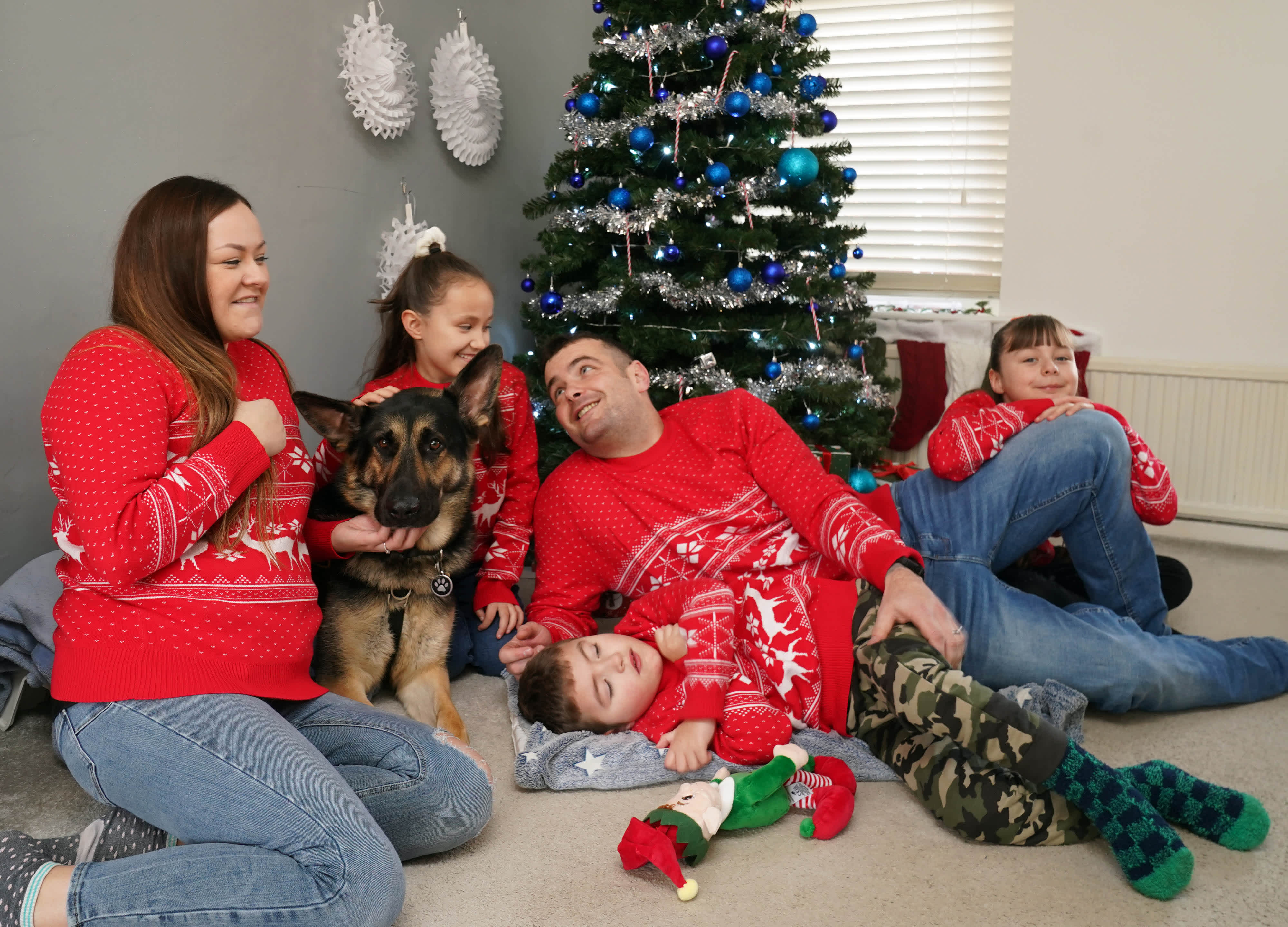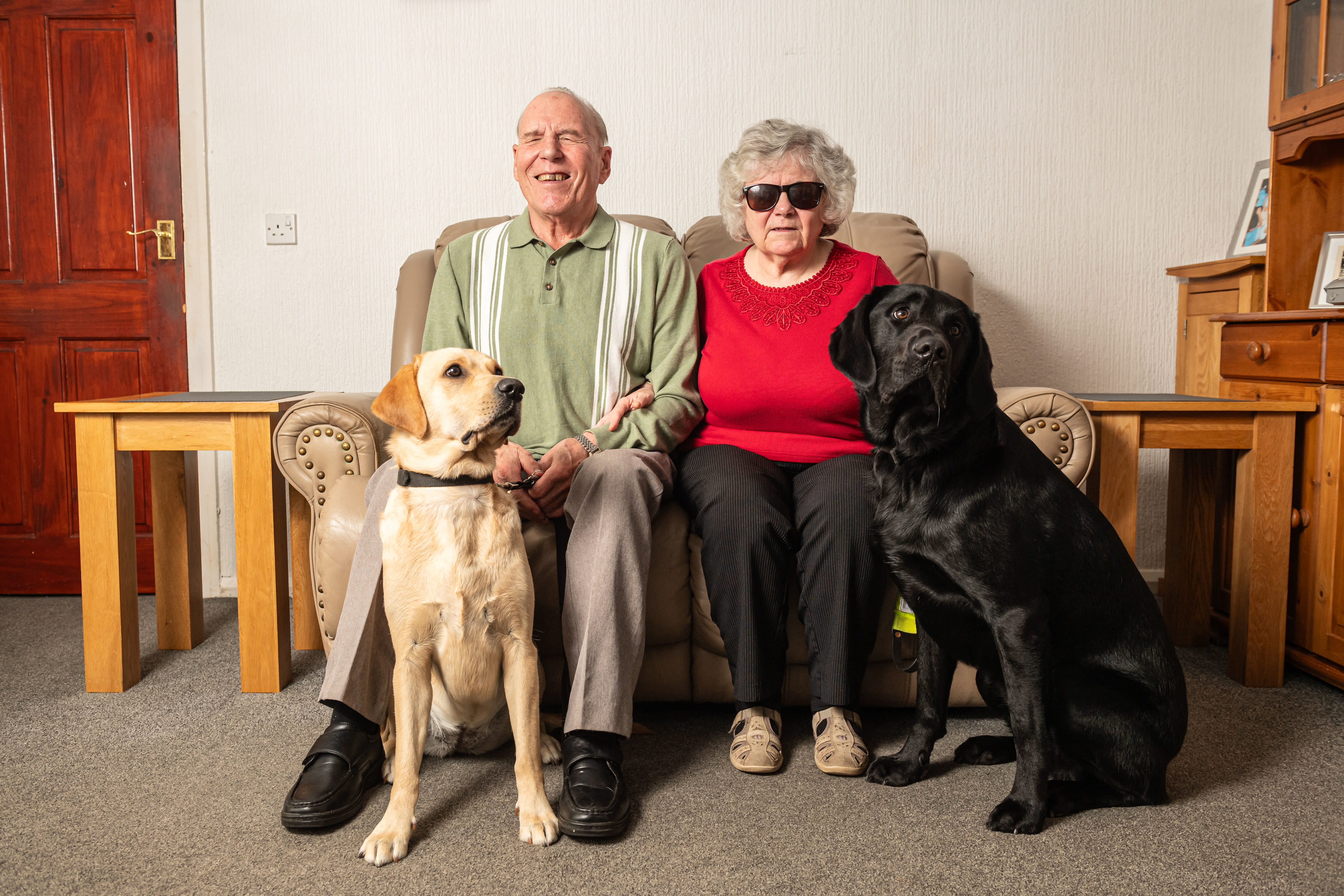Ann Ruddick MBE, from Malton in North Yorkshire, is marking 50 years of guide dog ownership this festive season, celebrating the amazing six guide dogs she has been partnered with since 1973.
Ann was born with different but very rare eye conditions in each eye – microphthalmia, a developmental disorder where the eye is abnormally small, and coloboma, an area of missing tissue in the eye. Ann is one of the estimated 4-7% of the registered visually impaired population who have no vision at all.
At 72 years old, Ann is now reflecting on the last 50 years of her life as a guide dog owner: “I was very fortunate as a child to have a supportive and accepting family – my parents never held me back because of my sight loss and always supported me in doing what I could and wanted to do. I went to special educational schools before training as a teacher of primary age children at a mainstream teacher training college.
“Up to that point I’d always used a symbol cane and then a long cane. While at college I thought it was the right time to apply for a guide dog. I’ve always loved dogs and I was already very independent so for me it was just as much about the companionship, if not more.”
On 20 December 1973, in a very snowy Forfar in Scotland, Ann qualified with her first dog, a yellow Labrador called Jaspa.
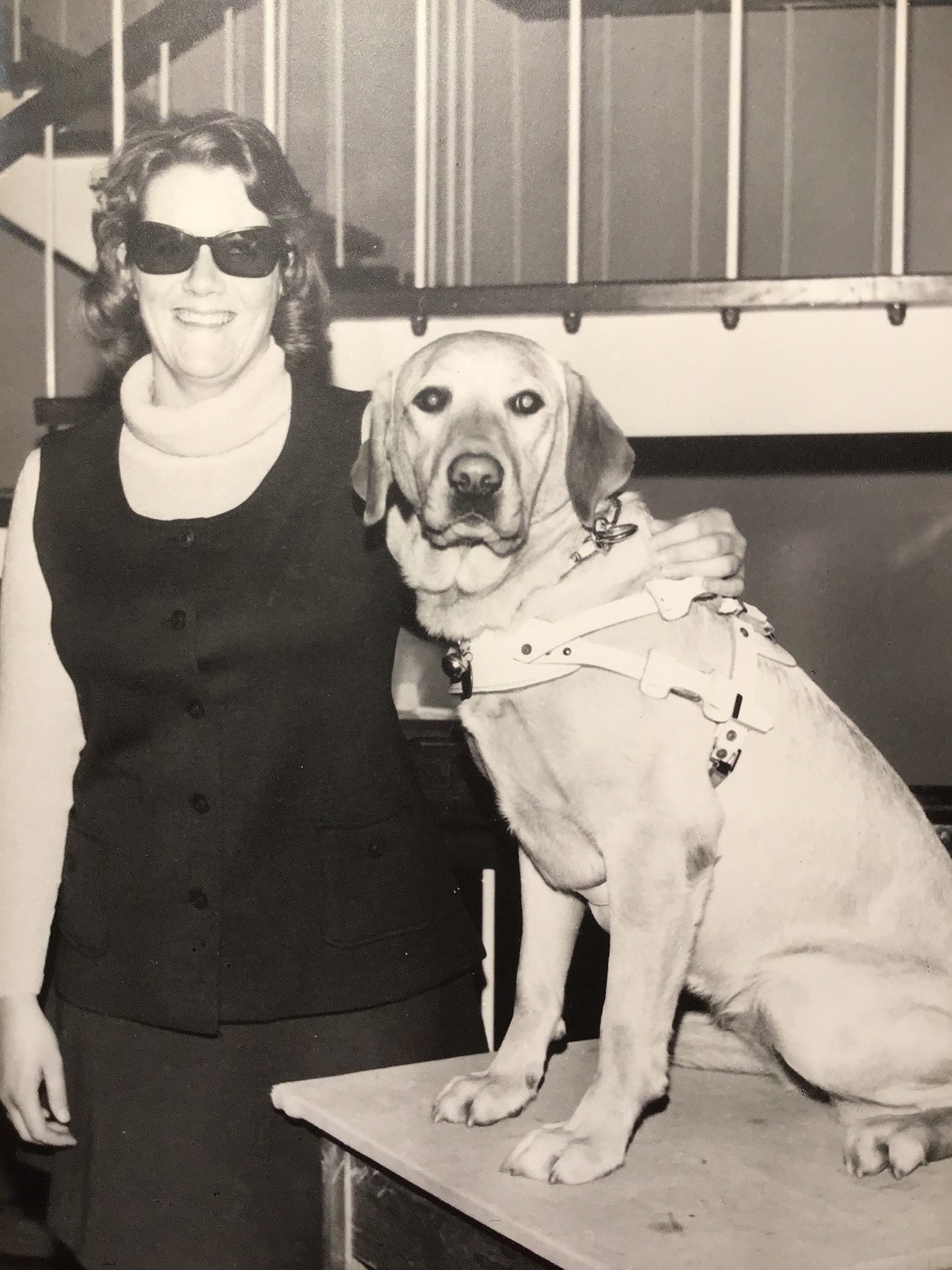
“It was a real lightbulb moment for me. During the training process I’d started to think is a guide dog really that different from a cane? I mentioned this to my trainer and he suggested I tried a route with the cane, and then guided by the dog. Well, it was worlds apart – I was so much more relaxed and felt a real sense of wellbeing. From that day on, I never looked back.”
Since that first partnership with Jaspa, Ann has had five guide dogs – Omar, Honey, Becky, Pippa and now Millie – all of them of varying colours, breeds and personalities! Ann says each one supported her through very different life stages:
“With each dog, the experience and the support I had from them was very different. Jaspa was with me travelling a lot, going to different places and so her being a confident dog was really important. After our daughter was born, Omar, my second dog, learned how to guide me while I pulled the pram behind me. He was amazing.
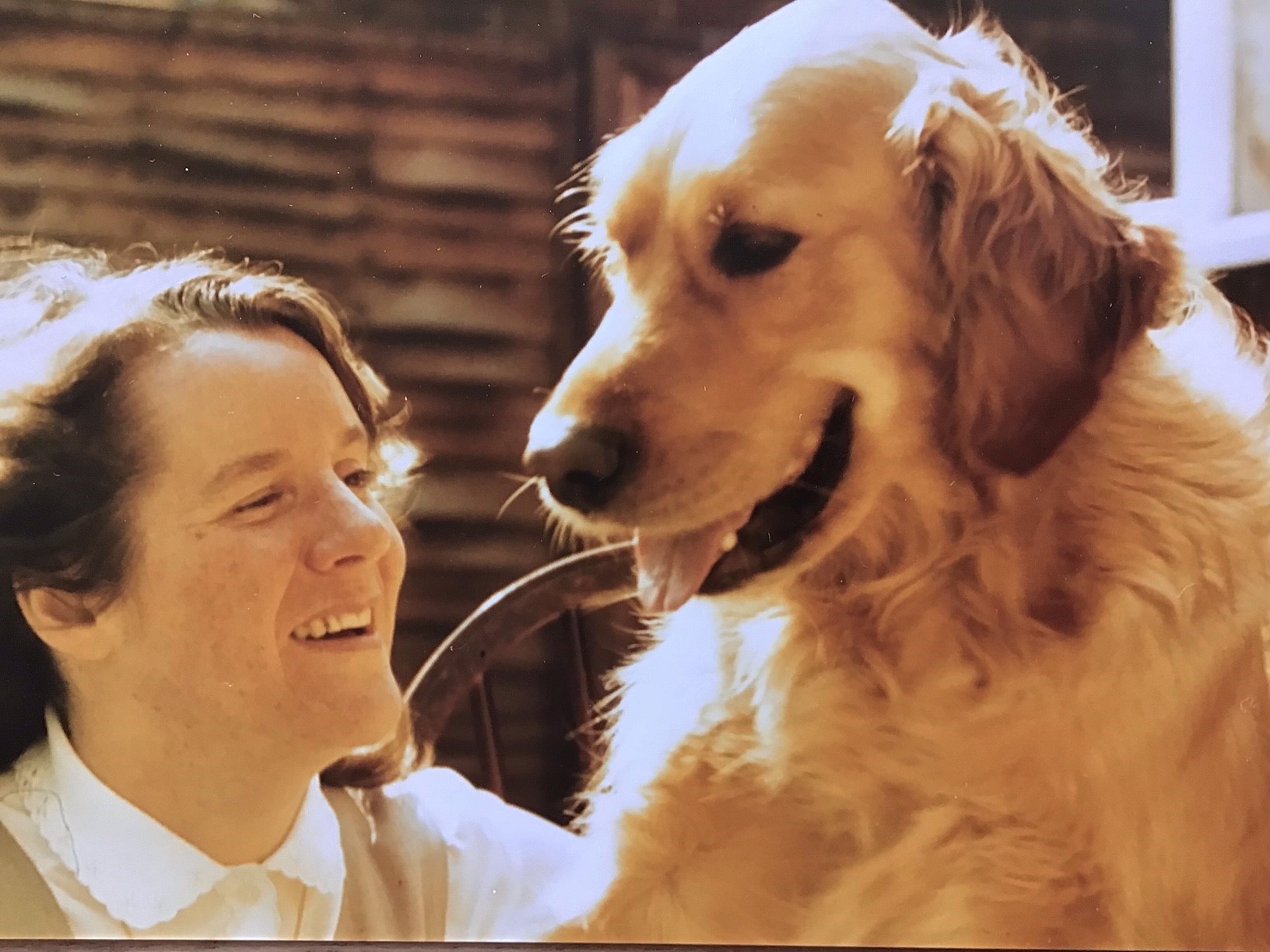
“Just after I trained with my third dog, our daughter started school, and Honey was by my side as I helped out. Honey by name Honey by nature, she was such a sweet girl!
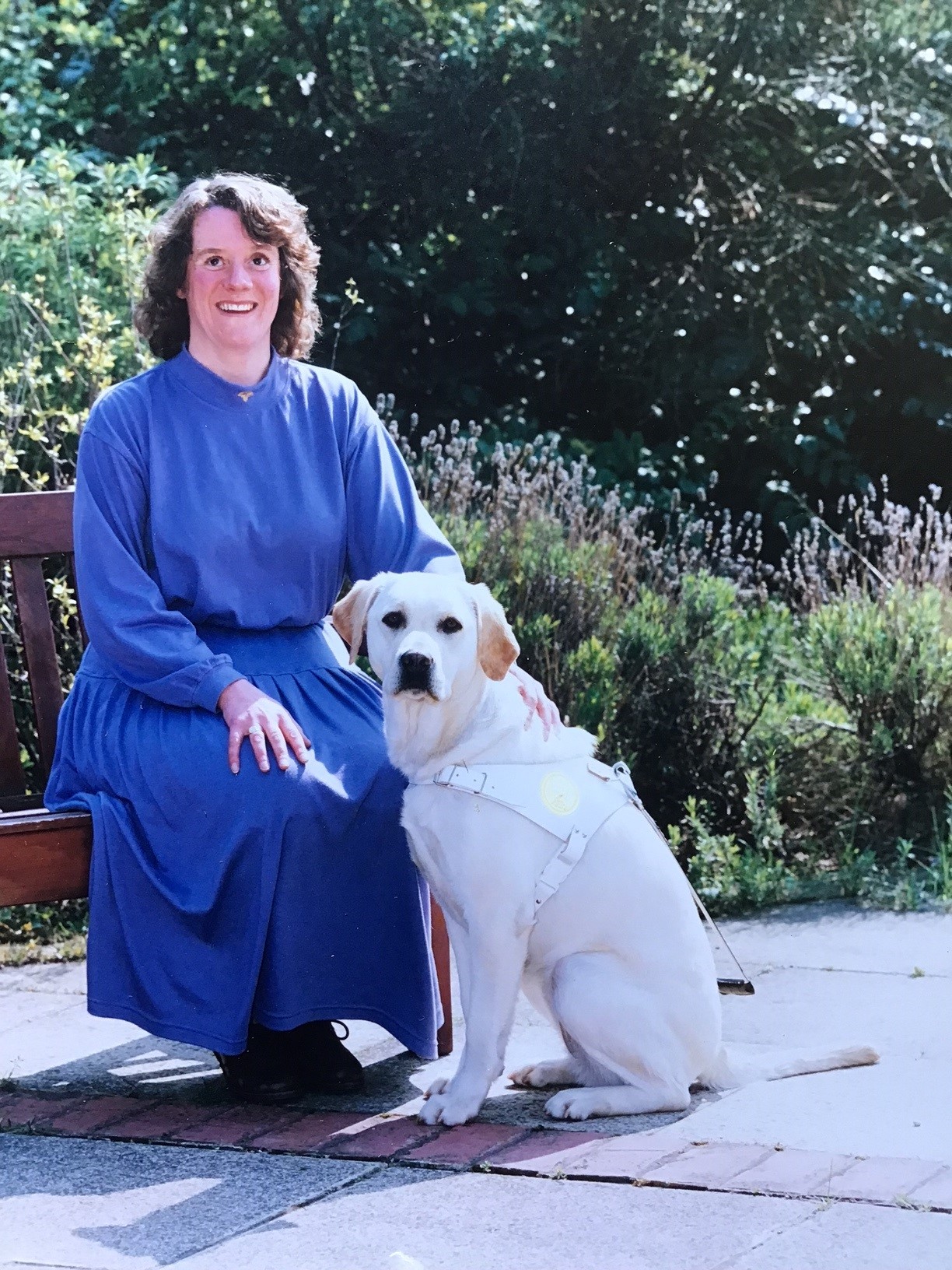
“My fourth dog Becky did have some health issues, bless her, but with her help I had the confidence to go back to work, travelling on public transport for an hour each way, every day.
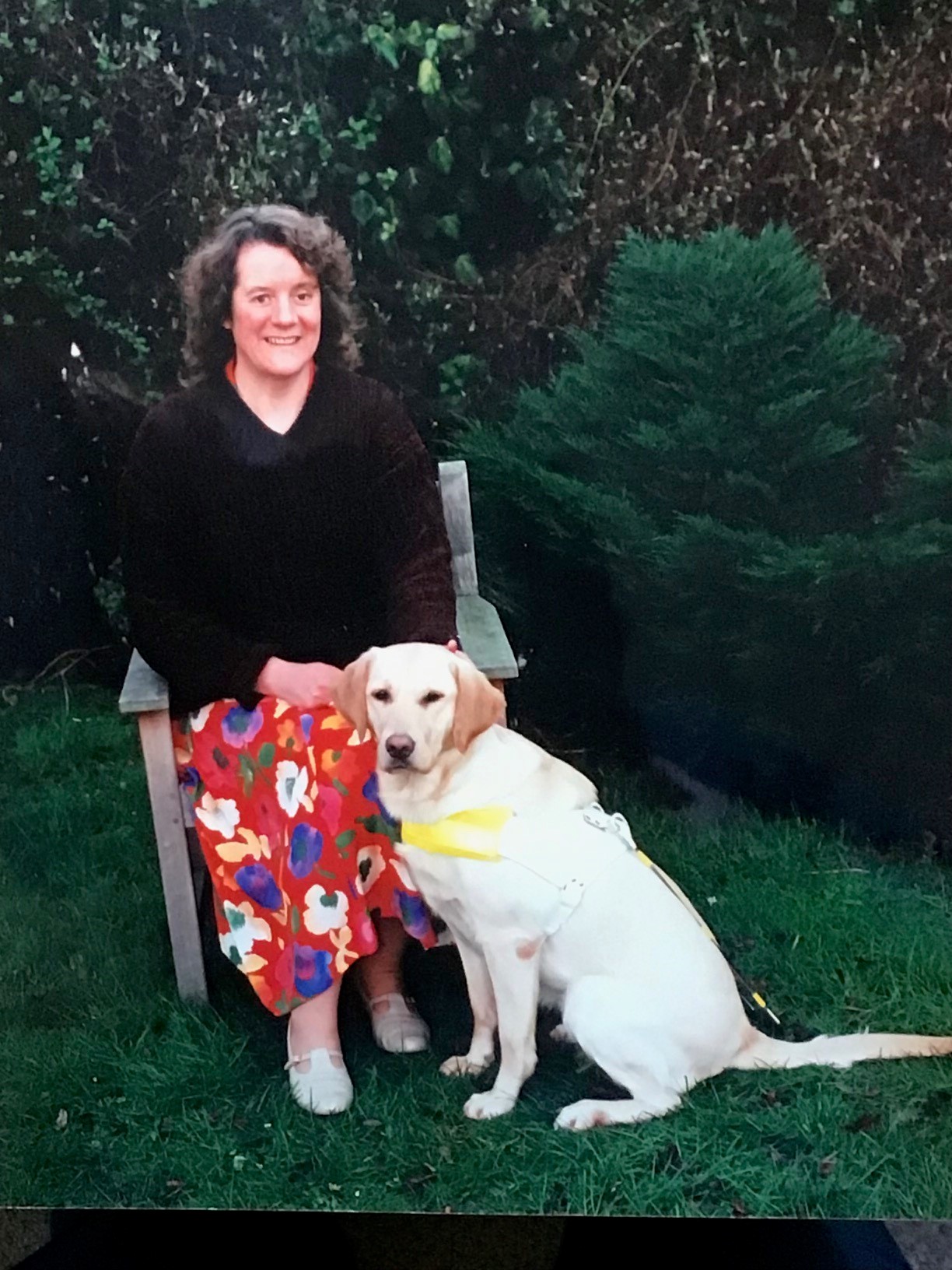
“Then came ‘perfect’ Pippa – whose only aim in life was to please! During our time together I retired and we moved to Malton – a new area and we learned all the new routes together. I couldn’t have managed the move without her. And now with Millie, I go to different places every day which suits her, as she’s very sociable and a real princess!
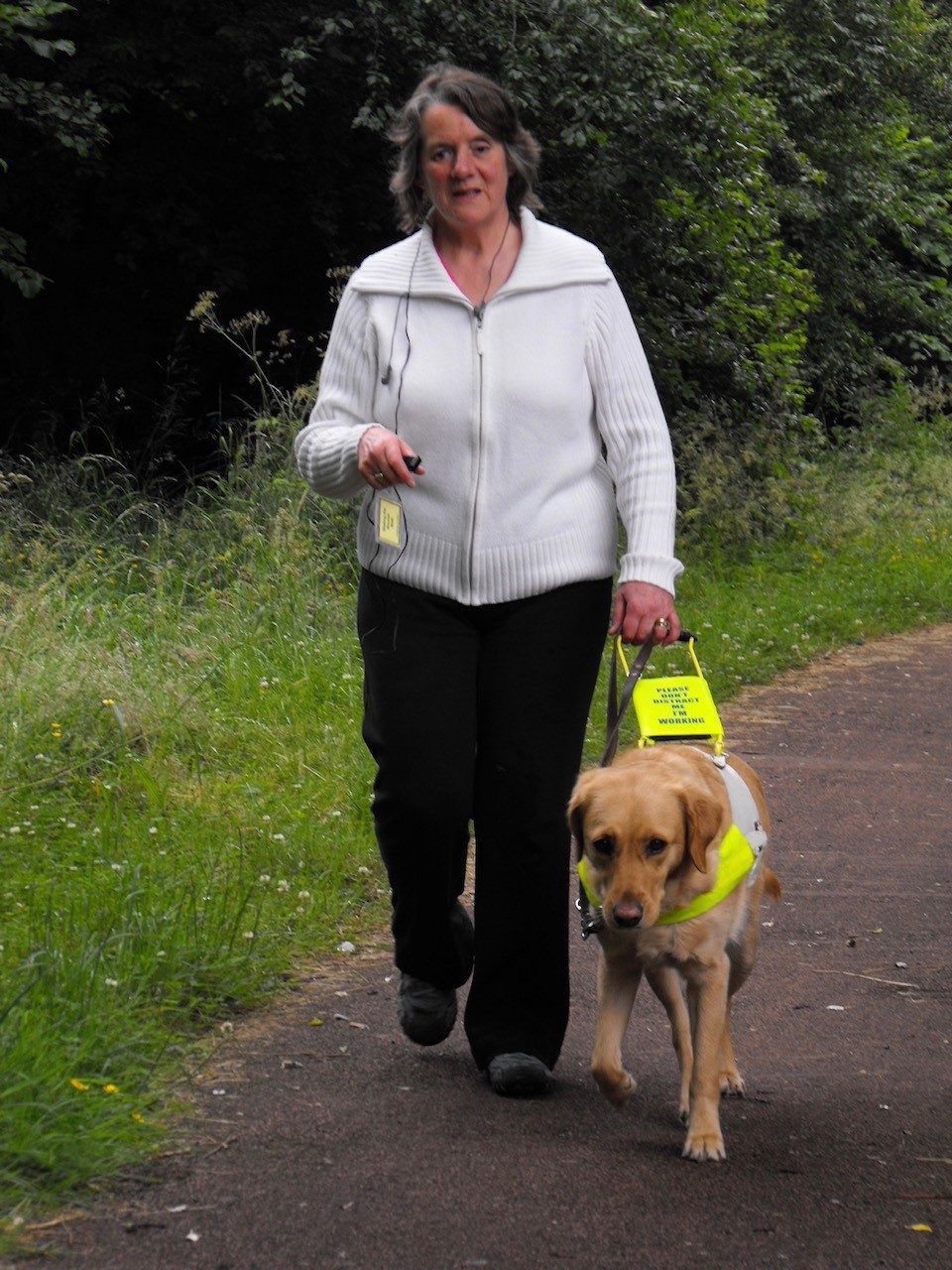
“I think some people think that once you've had two or three dogs, why is there any need for you to keep going through the same assessment process? But when you look at your life, it changes so much and your different circumstances mean you really do need that person-centred matching process that Guide Dogs provides.”
After each of her dogs retired, Ann was able to keep them as pet dogs in the home. She and her husband Stephen moved to Malton nine years ago after retiring and they really value the community spirit in the North Yorkshire town:
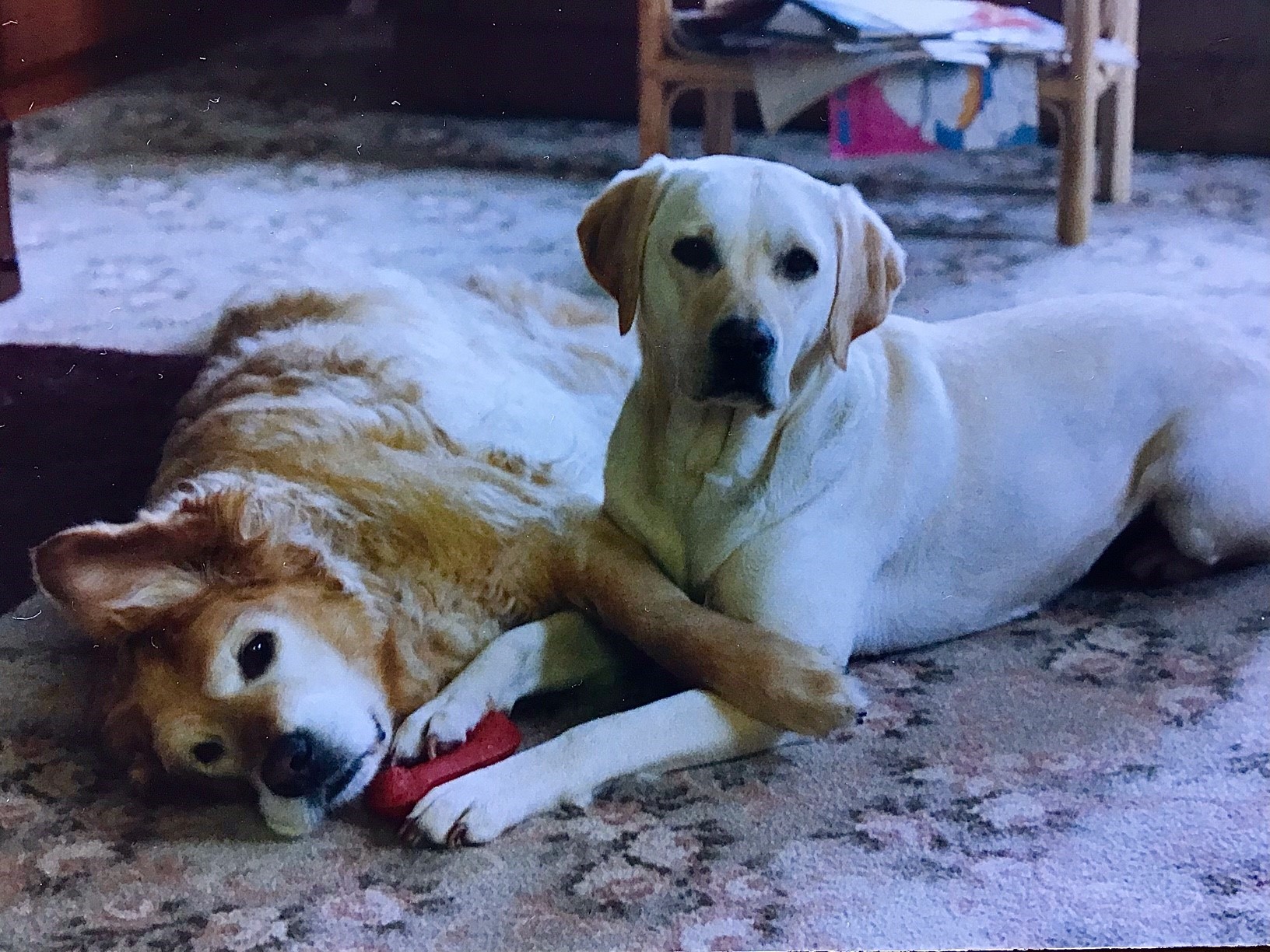
“I believe that you have got to make a conscious effort when you move to a new place and so we immediately got out there and made ourselves part of the community and quickly got to know people - neighbours, social groups and local businesses. This was especially important for me as when I walk into a shop now, people know who I am and greet me by name and ask if I need any help. As someone with no sight it’s so helpful to know when someone is talking to you,” Ann said.
Since retirement, Ann is busier than ever.
“I like to sing, so I'm part of a local group called Musical Memories, singing songs from different eras and then talking about that period of time.
“I love dancing and I go regularly to a class with other visually impaired friends where we have great fun. I knit a lot and like to try new and different crafts. We also enjoy going to the cinema and theatre and going out with friends. We’re also big classic car enthusiasts – Millie just loves travelling around in our Jaguar E-Type!
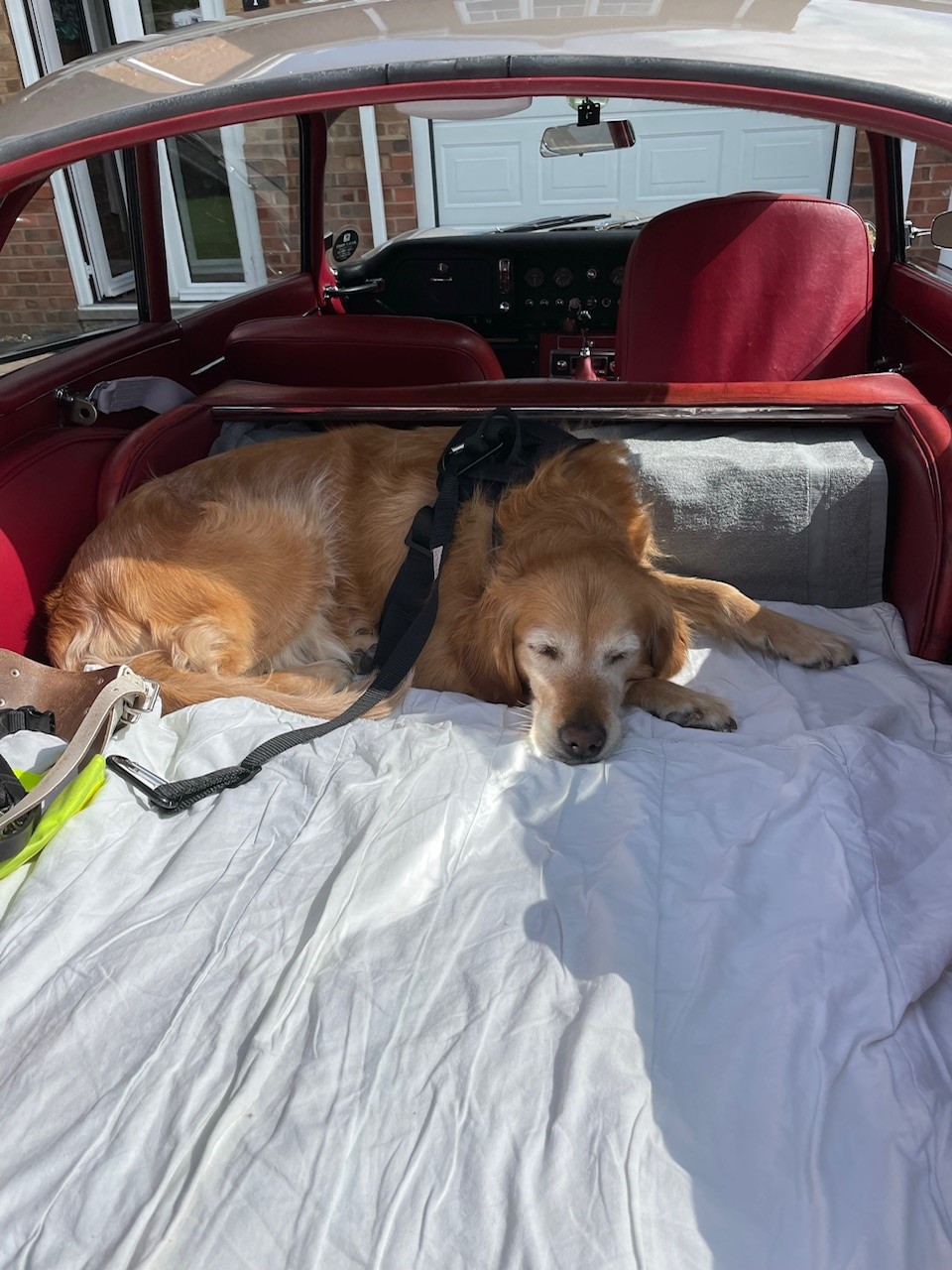
“One of my biggest passions though is West Ham United – I’m a huge fan and have been since the days of Geoff Hurst in the Sixties. I’ve been to several away games and went once to Upton Park as a birthday treat.”
One thing that Ann is extremely humble about is the fact that in 2008, she was awarded an MBE by Queen Elizabeth II for her valuable contribution to sight loss organisations. Ann said: “I don’t talk about it very much but I was very fortunate 15 years ago to receive an MBE – it was a huge honour but I honestly don’t feel I really deserve it! My husband, my daughter and my friend Karen who nominated me came with me to Buckingham Palace and watched the whole proceeding. It was an amazing experience.
“I worked in local government where I trained and advised other departments on the needs of sight impaired people in the community, as well as working with museums, galleries and other public services to help make their venues more accessible to visitors with a vision impairment.”
While Ann has lived a full and active life thanks to her guide dogs, it’s not been without its challenges – with environments and society changing dramatically, as well as a global pandemic:
“Things have changed so much since my first guide dog partnership. There’s so much more traffic and with the introduction of electric vehicles which are so hard to hear. The pandemic also caused some issues for visually impaired people and guide dog owners – social distancing was hard to judge, I couldn’t read the signs in shops or find where the hand sanitiser was for example. And of course Millie didn’t know what social distancing was or what one way systems in supermarkets meant! As such a sociable dog I think she felt upset too when people crossed the road to give us space.
“Now, everything's so much bigger, so much busier. And everything's very cluttered and bustling and I think guide dogs do such an incredible job guiding us safely around. You've really got to appreciate the work that they do – I just can’t imagine it being the same with a long cane.
“Everyone talks about the independence a dog gives you – which is of course true. But for me it’s the freedom of movement in such a relaxed way. Especially when you can’t see anything at all. You really feel like you can trust them to do their job – and of course you’ve worked so hard to build up that strong partnership, based on what you’re taught through the team at Guide Dogs.”
Millie is now eight years old and in two to three years’ time, she’ll retire. Ann says she plans to re-apply for guide dog number seven.
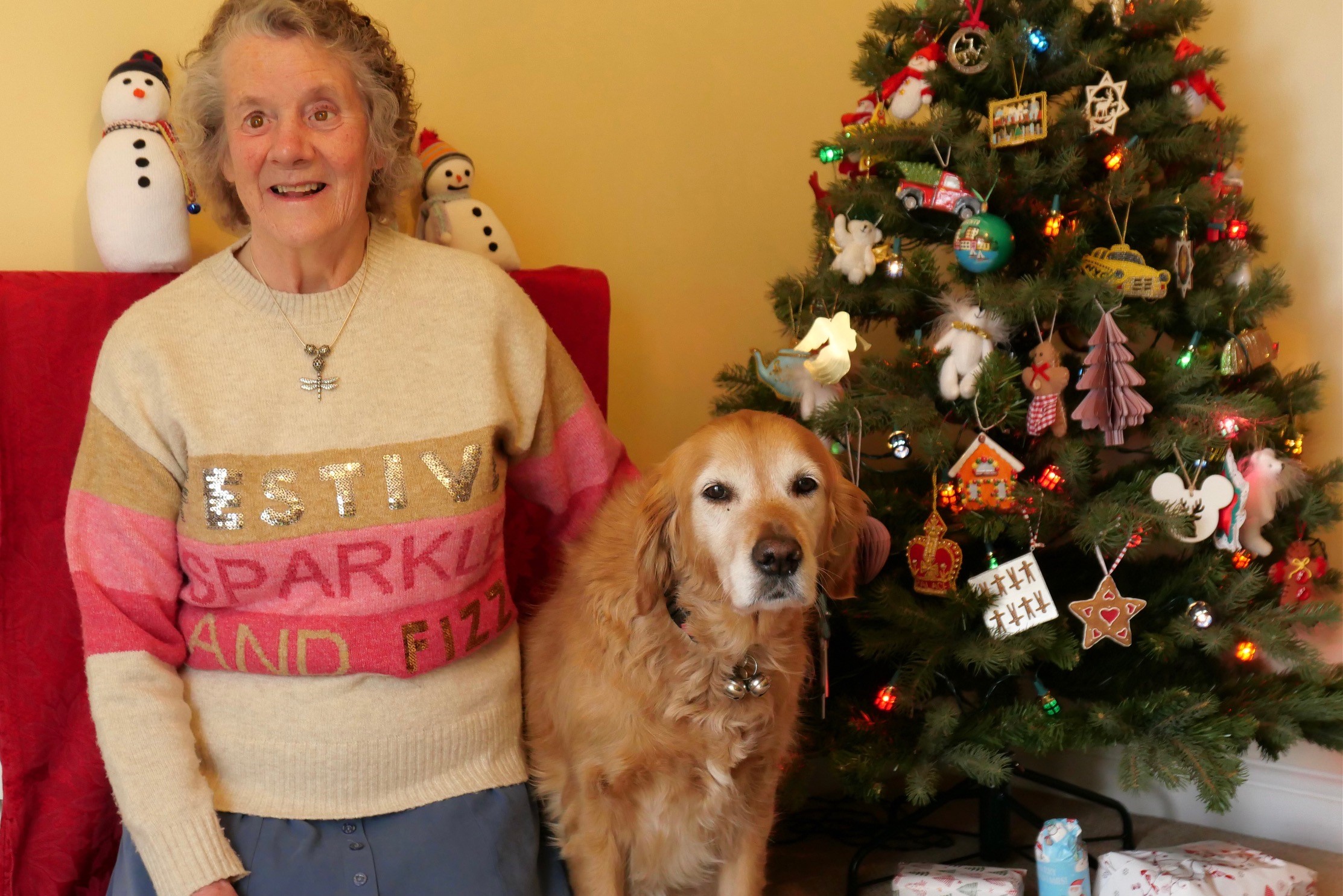
Ann concludes: “I just don’t want to lose my freedom and a guide dog gives me that. I like to be able to call to Stephen that I’m just off into town or going for a coffee with my friend Judith - and he can do his own thing. So for as long as I am able to, I will always have a guide dog. They’re life-changing.”

